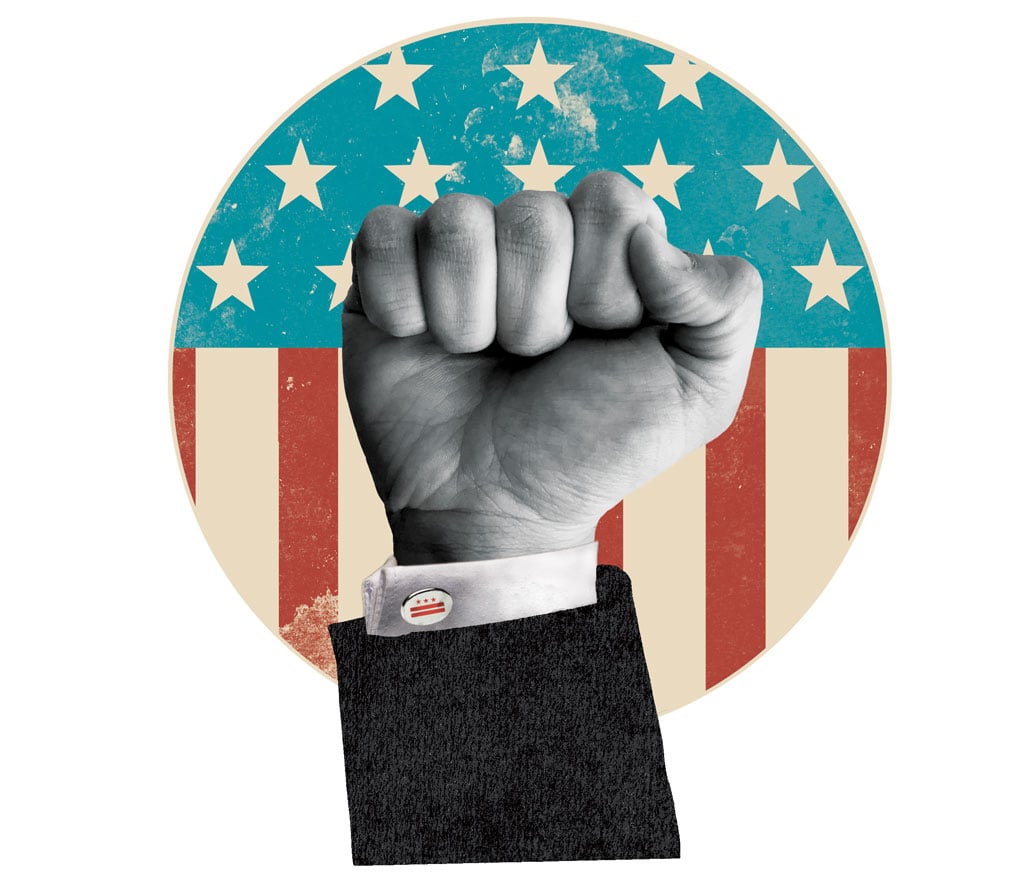In the late afternoon of its first day in session, the 115th Congress reinstated a long-dormant measure known as the Holman Rule. This abstruse piece of law allows legislators to cut funding for individual programs or, even more surgically, reduce the salaries of individual federal workers to a dollar. The move—which effectively creates a work-around for pols to fire job-protected civil servants—made national headlines. Which, of course, was the point.
Some 12 percent of the greater Washington workforce is employed by the feds and, like the rest of permanent Washington, has gotten used to being pilloried during campaign season—candidates have been promising to pull the stopper and drain the swamp pretty much since the swamp was established. President Trump’s calls for a federal hiring freeze, a pension reduction, and an end to lockstep pay increases are, in this way, nothing new.
The resurrection of the Holman Rule, though, looks like the opening volley in a war on the civil service. At worst, it’s an ultimatum to dissenting workers; at best, it’s a stunt that will nonetheless have a chilling effect on dissent. It also signals an alarming cultural shift. Seen alongside the new administration’s green Cabinet picks, only 10 of whom have government experience, Holman feels like another potshot at a familiar bogeyman of our discontented age—one that’s a point of pride for Washingtonians of all ideological stripes: expertise.
Trump’s campaign was only the highest-profile example of this turn in American culture. He ran for President as an outsider. His opponent was, by turns, the careerist, the technocrat, the has-been. “The one thing you have over me is experience, but it’s bad experience,” he told Hillary Clinton. The narrative of the election and its results evolved into a battle between the maverick and the expert—those ideas pitted against each other like natural opposites, the candidates their avatars: If Clinton is an expert, then experts are now losers.
Except the dichotomy is a false one.
The only common denominator that social science has found among people who are exceptional at what they do is their dedication to practice. An expert is someone well rehearsed—such as a career civil servant who has confronted the issues and tasks central to his or her work innumerable times under administrations of both parties.
Beyond that, experts are well vetted. There are barriers to entry and sticking around in fields such as alternative energy, early education, and economic policy—degrees, postdocs, fieldwork, even the revamped civil-service exam. To reach expert level requires continuous study backed up by the recurrent scrutiny of one’s peers. This doesn’t mean experts are always right, but they are likeliest to be right most often. And federal Washington is thick with them.
The opposite of the expert isn’t a maverick or even an outsider but an incompetent. Believing otherwise makes it too easy to conflate lack of experience with fresh eyes or blank slates. The reality is that most civil-service jobs, just like most non-civil-service jobs, require a person to do tasks over and over again, modified to the day’s context: analyzing the latest intelligence, running a trial on the newest drug. In most cases, we don’t need mavericks. Incremental progress in arenas such as foreign policy isn’t a bottleneck—it’s best practices.
Of course, institutions can grow less nimble and open over time, but the solution isn’t to hollow out the institution. It’s to find the people within the field who are mavericks among experts: those who, despite the weight of familiarity, keep their disposition for blue-sky thinking. In all likelihood, the next big breakthrough in climate science isn’t going to look like much from the outside. But the ability to see the revolution in small changes—plus to anticipate why something won’t work before it doesn’t—is what makes the need for expertise so urgent and the reliance on it so efficient.
Experts don’t merely make better civil servants in the technocratic sense; they’re essential to preserving a government in which knowledgeable people offer leaders objective advice—i.e., the job of a civil servant. To lure talented workers into giving up private-sector salaries, Uncle Sam has long tapped into a sense of civic duty. The Holman Rule, originally enacted to upset the spoils system, imperils the service’s nonpartisan reputation and will, through increasing the likelihood of firings and resignations, create expertise vacuums to be filled with hacks and lackeys.
Washington has always had its share of those, but it’s also a place with a reverence for expertise. Disdaining that quality hasn’t always been a conservative cause—even now, it pops up all over the spectrum (witness the discredited anti-vaccination trend that’s particularly pronounced in blue enclaves such as Marin County, California). But it has been mainstreamed by the GOP that embraced Trump, meaning that today it’s a stance with real power. Expert, in this new world, is a measure of who you are, not what you know.
Yet it would be foolish to think that, say, collecting the names of Energy Department staffers involved with the Obama administration’s climate efforts was simply an act of policymaking. Maybe you disagree with Obama’s stance on the Paris Agreement. Maybe you don’t. But menacing the civil servants assigned to work on the policy is basically tossing away the expertise that taxpayers, and a bipartisan array of Presidents, have paid for. Americans—particularly those in Washington—ought to stand up against that kind of waste.
Will Republicans invoke the Holman Rule to restaff agencies that cause them problems? There’s certainly enough cause for panic. But even if they never use it, the message has been sent: In Trump’s Washington, the best expert is a quiet one.
This article originally appeared in the February 2017 issue of Washingtonian.



















